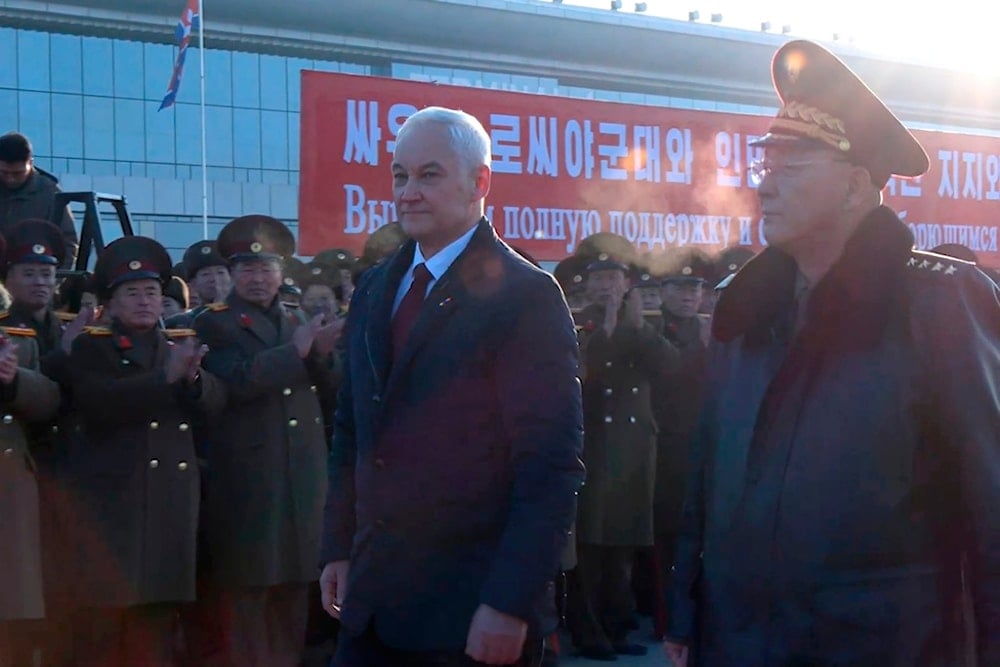Russia Defense Minister visits DPRK amid growing ties
Russia's Defense Minister visits the Democratic People's Republic of Korea for several bilateral meetings as the two countries work on enhancing their military ties.
-

Russian Defense Minister Andrei Belousov, left, is welcomed by DPRK Defense Minister No Kwang Chol at Pyongyang International Airport outside of Pyongyang,the DPRK, Friday, Nov. 29, 2024 (Russian Defense Ministry press service via AP)
Russian Defence Minister Andrei Belousov arrived in the Democratic People's Republic of Korea (DPRK) on Friday for an official visit, according to Russian state news agencies. His trip, which aims to bolster military cooperation, underscores the growing ties between Moscow and Pyongyang amid international conflicts and mounting Western sanctions.
Belousov is set to hold discussions with "a number of bilateral meetings with representatives of the military and military-political leadership," though the specifics of these talks remain undisclosed. Upon his arrival in Pyongyang, he was greeted by his DPRK counterpart, No Kwang Chol, highlighting the high-level nature of the visit.
This visit comes against the backdrop of enhanced military collaboration between the two nations, which have drawn closer since the onset of the Ukraine war. In June, Russia and the DPRK formalized a strategic partnership treaty, committing to mutual military assistance in case of an attack and coordinated efforts against Western sanctions.
The allied states ratified earlier in November the landmark defense pact, deepening security cooperation. The agreement formalizes months of tightening military bonds between the two nations.
Putin hailed the deal in June as a "breakthrough document". He added, “The document on comprehensive partnership that we signed today provides, among other things, for mutual aid in case of aggression against one of the participants."
Putin stated that Moscow supports Pyongyang’s right to protect its security and sovereignty from potential Western aggression. He also attributed the rising tensions in the region to the actions of the US and its allies.
South Korea and the United States, accused the DPRK of sending thousands of troops to Russia, where they have been allegedly provided with Russian uniforms and are reportedly stationed near the border close to Kursk, which Moscow and Pyongyang denied.
Both nations face extensive UN sanctions—the DPRK for its nuclear weapons program and Russia for the Ukraine war—which has brought them closer.

 2 Min Read
2 Min Read








